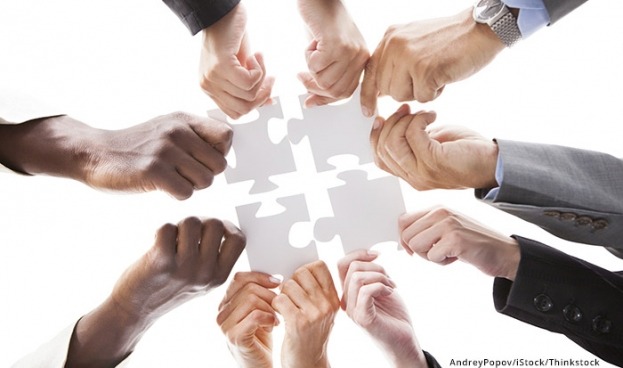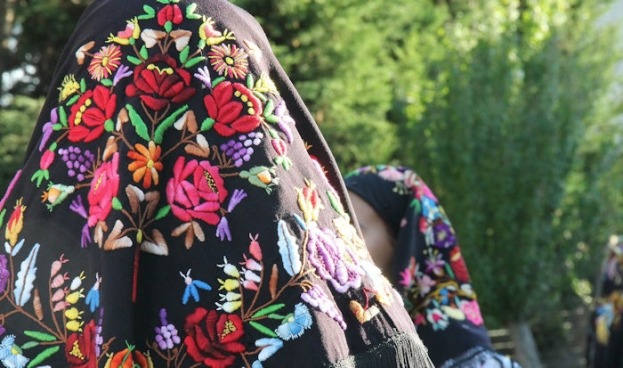Many of us have experienced a coarsening at all levels of society. Who hasn't been dismayed by the rudeness on the streets, the disregard of the comfort of others in public places, the rage which flares out not only on roads but also in schools and sports events. Clearly we have lost sight of civility, a spiritual practice which enriches our lives and our interactions with others.
 Posted by Frederic Brussat on March 16, 2017
Posted by Frederic Brussat on March 16, 2017
"America has always harbored virulent strains of coarseness and cruelty and political campaigns are customarily bitter mudslinging affairs," writes Teddy Wayne in an article in The New York Times. He, like many of us, laments that a "culture of nastiness has metastasized in which meanness is routinely rewarded, and common decency and civility are brushed aside."
 Posted by Frederic Brussat on February 16, 2016
Posted by Frederic Brussat on February 16, 2016
The late Vaclav Havel wrote that civility can only come about through the "complex, long-term, and never-ending work involving education and self-education." In this enlightening article from aspen.us, we learn about the Aspen Institute which could be called a workshop for civility. In a variety of policy, public, leadership, and seminar events participants spend time focusing their attention on some of the major problems of our times. Civility is practiced through the "cultivation of the habits of thought, dialogue, and action." In this process, the common good is nurtured and nourished in small groups.
The Aspen Institute addresses the incivility of Washington's political discourse, the growing ideological rigidity of think tanks and other political institutions, and the distractions of the digital age which hinder deep thought. Self-awareness and self-correction are two of the major leadership goals which undergird these seminars. The Aspen Seminars also set out to foster among participants "lasting bonds of mutual support, accountability, and friendship."
 Posted by Frederic Brussat on July 9, 2015
Posted by Frederic Brussat on July 9, 2015
Why we should be more tolerant of those who never smile.
"Yogananda Paramahamsa has a beautiful suggestion for thawing the arctic state of our feelings; it is for all of us to become smile millionaires. This is the kind of millionaire that everyone can be, because everywhere we go we can always smile," Eknath Easwaran has observed. While many people are able to do this social practice with ease, there are others who have a hard time smiling at others in a natural way.
 Posted by Frederic Brussat on March 30, 2015
Posted by Frederic Brussat on March 30, 2015
Mahatma Gandhi's Ingersoll pocket watch was among the few material possessions he left behind. It signaled him to go to bed, shortly after midnight, and it was there when he arose at 4 a.m. On the day he was assassinated at the age of 78, the watch stopped at the exact moment when he died.
 Posted by Frederic Brussat on March 23, 2015
Posted by Frederic Brussat on March 23, 2015
"You may not think that living with others is an art, but it is the finest and most difficult of arts. . . . Courtesy is a way of living inspired by thoughtfulness, consideration, and respect for others and yourself."
- Mary Mercedes in A Book of Courtesy
 Posted by Frederic Brussat on March 20, 2015
Posted by Frederic Brussat on March 20, 2015
In this sad and scary article on alternet.org, Allegra Kirkland charts the rise and expansion of "defensive architecture" which is being used as a security measure around government buildings, and shopping malls and other retail operations. The idea is to make it difficult for homeless people and other vagrants to inhabit public spaces.
 Posted by Frederic Brussat on February 26, 2015
Posted by Frederic Brussat on February 26, 2015
Bernard Crettaz, the Swiss creator of the "death cafe" movement, has decided that it is time for leadership to pass to the next generation. Ten years ago after the death of his wife, this popular sociologist came up with the idea of death cafes where the taboo subject was the sole topic of conversation. Small groups gathered in restaurants, anyone was welcome, and Crettaz usually led the conversation about grief, suicide, near-death experiences, faith, spirit, soul, good deaths, and the afterlife. The only rule was that there was to be no prescription: no topic, no religion, no judgment. The first death cafe took place in 2004 and in the last three years, there have been over 1,400 death cafes in 26 countries. The website www.deathcafe.com will give you more information on hosting a cafe and the location of conversations around the world.
 Posted by Frederic Brussat on January 8, 2015
Posted by Frederic Brussat on January 8, 2015
In his blog, Edward Hays notes that the Alaskan Yupitt Indian people have a bigger world than we do since they interact with nature and inanimate objects with reverence and caring. For instance, if a woman from this tribe comes upon a piece of driftwood, she picks it up and turns it over so its underside can get some fresh air and sun. Hays observes: "By this deed she bestows a blessing on the Yula (spirit) of wood and in return in gratitude she receives a blessing from the wood's spirit."
 Posted by Frederic Brussat on December 30, 2014
Posted by Frederic Brussat on December 30, 2014
We recently shared on this blog the results of a survey of American airline passengers conducted by the travel engine Expedia. We listed the ten top etiquette violators on planes.
About This Blog
Relationships are the central web of our lives. The strands connect us to family, intimates, partners, friends, as well as communities, natural places, and the Divine. Strong relationships emerge from and support civility — respect, courtesy, consideration of others, politeness, good manners, basic kindness. More

 On Not Reclining Your Seat
On Not Reclining Your Seat Civility Brushed Aside
Civility Brushed Aside A Workshop for Civility
A Workshop for Civility Being Tolerant of the Unsmiling
Being Tolerant of the Unsmiling Mortality Is a Hot Topic Around the World
Mortality Is a Hot Topic Around the World